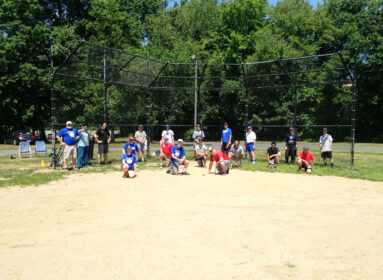
A Post Passover Reflection
By Rabbi Yehoshua S. Hecht
 It’s Saturday night and the eight-day Passover odyssey – leaving Egypt, land of bondage – has been completed with the Banquet of Moshiach (Messiah). This concluding Passover meal held towards evening originated with the holy Reb Yisroel Ba’al Shem Tov as a tangible expression of our yearning for the redemption of Moshiach to be heralded with the restoration of the third and eternal Beit HaMikdosh (Temple) in Jerusalem.
It’s Saturday night and the eight-day Passover odyssey – leaving Egypt, land of bondage – has been completed with the Banquet of Moshiach (Messiah). This concluding Passover meal held towards evening originated with the holy Reb Yisroel Ba’al Shem Tov as a tangible expression of our yearning for the redemption of Moshiach to be heralded with the restoration of the third and eternal Beit HaMikdosh (Temple) in Jerusalem.
These last eight days have been quite involved. Well before Passover began, we were busy with the removal and search for chometz (leaven) and with preparing our kitchens, both at home and at the shul, so that they are kosher for Passover.
The burning of the chometz on the eve of Passover was a somewhat easy ritual to perform. With the children gathering the branches to fuel the fire and the adults renouncing ownership of all chometz – we intoned the Kabbalistic prayer calling for the destruction of all leaven that represents the negative forces and ‘husks’ that conceal holiness and godliness in our material world.
Eight days later, on early Shabbat morning, I contemplated the many holiday observances while searching within me as to how I may have changed for the better by keeping the mitzvoth, traditions and customs associated with the festival of Passover. I also was thinking about a meaningful message to share with my fellow congregants at the service and during the Yizkor memorial prayer that is recited on the last day of Passover.
So, as I often do, I opened the Passover Haggadah containing the Rebbe’s commentary, and it came to me.
Passover is all about re-telling the story of the exodus from Egypt. It’s all about the sharing ve’he’gadeta l’bincha – and you shall tell your child about the redemption from Egypt that took place long ago. (The exodus took place in the year 2448; this year is 5778.)
It’s mandatory to remember and to recount the events of the exodus at the seder. This is considered as being one of the positive commandments from the Torah.
We are instructed not only to tell the story but also to reenact the exodus story as best as we can and to personalize it to the point of feeling this redemption from Egypt.
It’s not the matzah ball soup or even the special Passover dishes that is most important.
It’s the personal effort to share it with your spouse, your child and your brethren, observant or not. If it’s a member of the tribe – than they are 100 percent included in the narrative and experience called Passover.
Since the tragic events of 9/11 many have noticed the ubiquitous signs at airports and train stations: “If you see something, say something!”
Turning this on its positive side, I believe the Torah actually originated this statement.
We are told to remember and to say something about our going out of Egypt. We are enjoined to have the little child ask the Ma Nishtana – i.e. to say something about why the Passover seder night is different than all other nights. Even if the child cannot independently pose the question we are told to get the child to open his/her mouth and – you guessed it – to say something.
That which our ancestors saw in Egypt with their own eyes they were commanded to share with their children, and they in turn with their children. Every member of the Jewish people is to remember that we are free from enslavement and we are free to pursue and embrace the purpose of our physical freedom.
Namely, that we are free to serve God and humanity by embracing the Torah and its commandments.
Yes, indeed, each and every day we are to say something to remember our going out of Egypt. This event can and should resonate with the modern Jew of today.
Developing this idea:
In the English language the words “SEA” and “SEE” are indistinguishable in their articulation. Yes, indeed – each day we are to be thankful to God for splitting the Reed Sea and saving us from the Egyptians who were drowned at sea. If you SEA something say something!
Every day in our prayers we recount the Song of the Sea and mention the miraculous events at the Reed Sea – both evening and morning.
My hope is that the inspiration of this Passover just concluded carries over every day of the year by our offering acknowledgment to our benevolent Creator for the precious gift of freedom. Let us utilize this freedom wisely.
Am Yisroel Chai!
Rabbi Yehoshua Hecht is spiritual Leader of Beth Israel Synagogue Chabad of Westport/Norwalk and president of the Rabbinical Alliance of America.








 Southern New England Jewish Ledger
Southern New England Jewish Ledger










